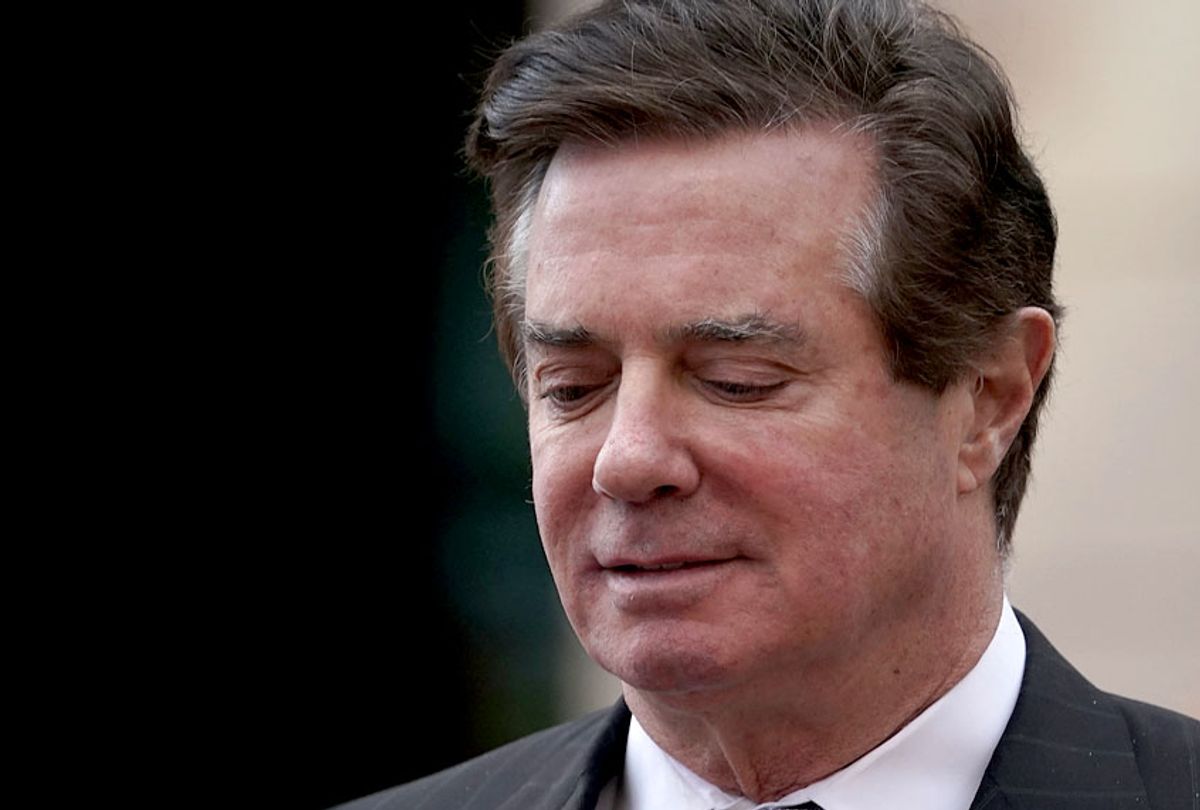Paul Manafort’s federal prison term nearly doubled on Wednesday when Judge Amy Berman Jackson tacked an additional 43 months to run consecutively with the 47-month sentence he received last week from a judge in Virginia.
And yet, receiving that sentence was the highpoint of his day. Because right after the former Trump campaign chair was sentenced, the district attorney in Manhattan announced that he has indicted Manafort on 16 counts of crimes in New York state including mortgage fraud, conspiracy, an making false business records.
“I feel very badly for Paul Manafort,” Trump told reporters after the sentence was announced. “It’s a very sad situation.” He said he had not given any thought to the prospect of pardoning Manafort, which is almost certainly a lie.
Legal experts have long noted, though, that the looming threat of state prosecution would essentially nullify any implied or explicit promise from Trump of a presidential pardon, because he doesn’t have the power to pardon state crimes. And as conservative writer Jennifer Rubin noted, the pattern of events Manafort has faced may presage Trump’s own fate.
“The same fed and NY courts await him,” she wrote on Twitter. “There is not a damned thing he or Pence or any pres can do about the latter. The beauty of federalism and the rule of law.”
I have long been skeptical of whether Trump could ever actually face prison time for federal crimes, including, but not limited to, the criminal hush money payments that prosecutors in the Southern District of New York believe he committed. There are too many avenues for him to escape accountability on these measures. He could try to pardon himself before leaving office — a constitutionally dubious tactic that might nonetheless be upheld by the Supreme Court. If prosecutors had a strong enough case against him, they could get him to agree to a deal to resign his office in exchange for not receiving prison time, which is how Vice President Spiro Agnew was taken down. If he thought he was going to be forced out through impeachment, he could resign and then get pardoned by Mike Pence — which is what happened to President Richard Nixon.
Even if Trump were defeated by a Democrat in 2020, he or she might be compelled to pardon him for federal crimes —at the risk of a backlash from the base — for fear of the unrest his prosecution could cause.
But as Manhattan DA Cy Vance’s move against Manafort on Wednesday showed, state prosecutors are in many ways a law unto themselves. Presidential pardons or federal plea bargaining don’t seriously limit their powers. And as Vance’s efforts to go after Manafort show, they’re not cowed by the prospect of targeting highly connected defendants.
And if they could find compelling evidence of serious crimes committed by Manafort, is there any doubt that state prosecutors could uncover Trump’s own past crimes?
Journalist Garrett Graff pointed out Wednesday that Trump’s children were close to being charged by the state of New York for fraud. Trump himself may be guilty of tax fraud. And former New York Attorney General Barbara Underwood has already dissolved the Trump Foundation, the president’s former charity, after uncovering a “shocking pattern of illegality.”
Even Trump’s allies rarely claim that his past and business are guilt-free — they simply asset that pursuing those potential crimes would be partisan and unfair, for whatever reason.
But state prosecutors don’t have to worry about those concerns.
“No one is beyond the law in New York,” Vance said Wednesday — obscuring his own dubious role in the apparently letting Donald Trump Jr. and Ivanka Trump off.
If that principle truly applies to everyone, even to the president of the United States, then Trump may eventually face the same fate as Manafort — and join him in a New York prison.




Shares